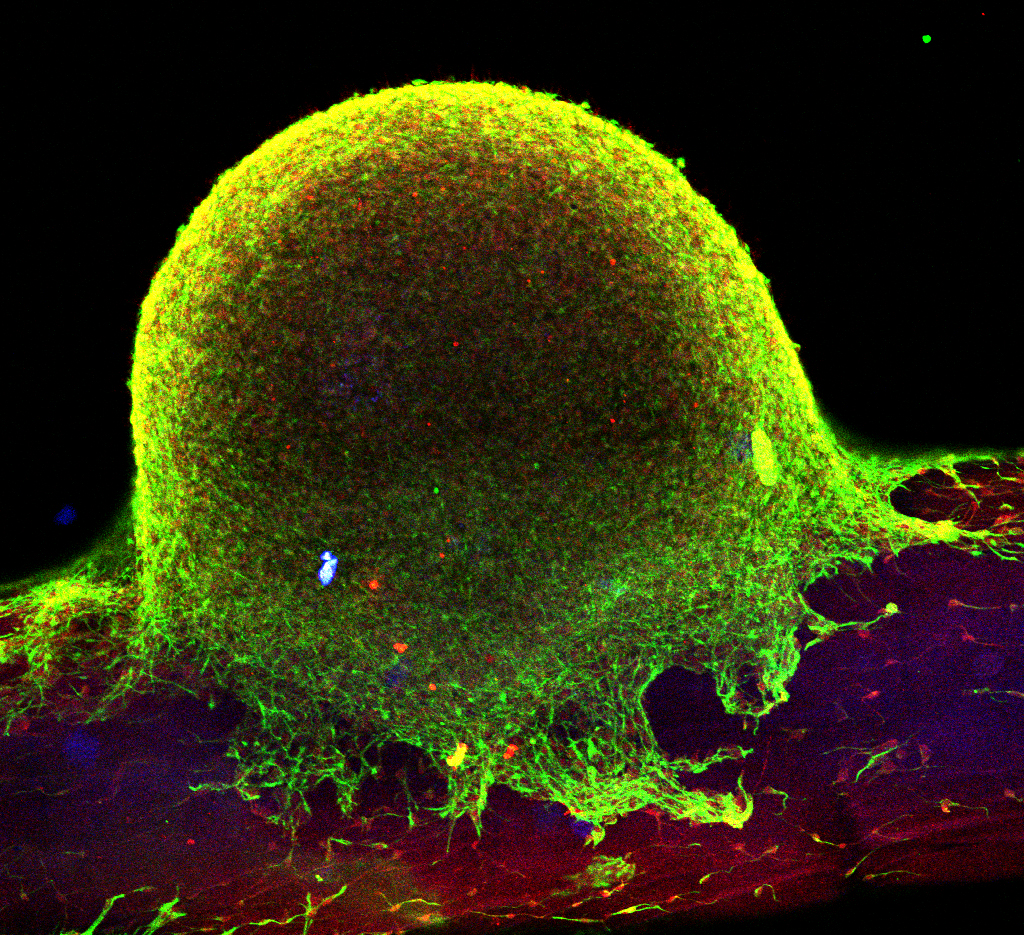Tag: Cell and Developmental Biology
-

On the Forefront of Regenerative Medicine
Northwestern’s biomaterials labs are developing the next generation of materials in medicine, called supramolecular biomaterials – molecules designed in a way to mimic cell structures and functions of biological signaling.
-

Inspired by Nature
This year, the University launched a new Center for Synthetic Biology, making Northwestern one of the top three U.S. destinations for research and education in this area.
-

Cardiac Stem Cells Predict Drug Safety and Efficacy
Analyzing a patient’s own stem cells can predict the safety and efficacy of drugs that have the potential to damage a patient’s heart, according to a new study.
-

Reengineering Important Motor Protein
Scientists have redesigned a motor protein so that it’s sensitive to chemical inhibition and accessible for future research on neurodegenerative diseases.
-

Exploring the Architecture of the Genome
Northwestern Medicine scientists explored how the physical arrangement of genetic material organizes within a cell’s nucleus and influences the cell’s function.
-

Uncovering Genetic Basis of Cilia Motility and Polarity
Scientists discovered that a specific gene that starts to build a link between cilia motility and cell polarity in a recent study.
-

Mitchell Receives Nikon Fellowship for Advanced Microscopy
Brian Mitchell, PhD, assistant professor of Cell and Molecular Biology, received the Marine Biology Laboratory Nikon Fellowship to advance his research on the development of multi-ciliated cells using microscopy.
-

Preventing Cells From Developing Into Tumors
A recent study co-authored by Northwestern Medicine scientist Robert Goldman, PhD, and colleagues suggests that degradation of lamin B1, a protein located in the nucleus of cells, helps suppress tumor formation.
-

Protein Degradation Pushes the Cell Cycle Forward
In a recent study, co-author Dileep Varma, PhD, assistant professor of Cell and Molecular Biology, helped explain why the sequential degradation of key proteins is important for normal cell cycle progression.
-

Exploring How Cells Forge Strong and Flexible Bonds
In a recent study, Northwestern Medicine scientists described a new process that explains how the adhesion between epithelial cells occurs.






